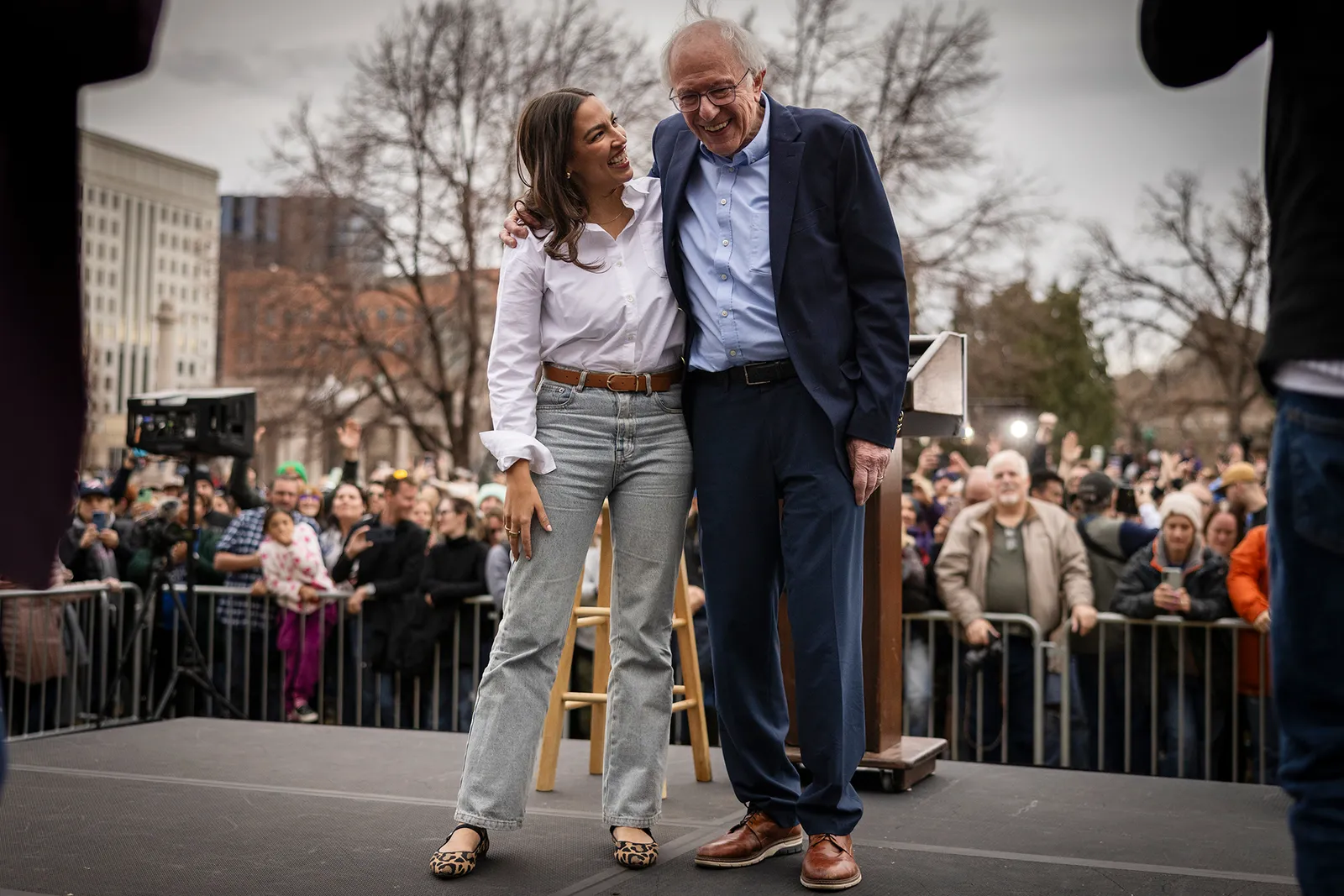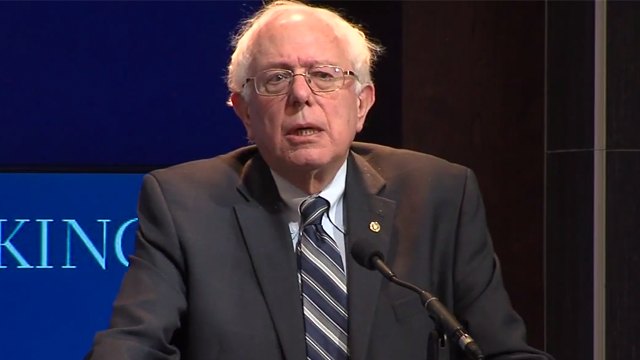The Consistent Message of Bernie Sanders
As he embarks on his latest tour across America, Bernie Sanders remains consistent in his message. He continues to denounce the federal minimum wage of $7.25 as a “starvation wage.” He demands urgent climate action, champions a single-payer health care system under Medicare for All, and insists that overturning Citizens United is essential to reclaiming American democracy from billionaires.
Sanders’ voice, passionate and unwavering, has been a staple in progressive politics for decades. Nearly ten years after launching his first presidential campaign in Burlington, Vermont, Sanders is back on the road. The difference now? The crowds are bigger, the stakes are higher, and his co-headliner is arguably the future face of the progressive movement: Alexandria Ocasio-Cortez.
A Tour Fueled by Vindication and Urgency
In a series of packed rallies across Western states, Sanders has reprised many of the same themes he raised during his previous campaigns. For his supporters and political strategists alike, the message resonates more than ever.
Pete D’Alessandro, a senior adviser on both of Sanders’ presidential runs, underscores that this isn’t about ego. “He doesn’t look at these big rallies like, ‘I’m a rock star!’ It’s, ‘Can we move these ideas into a bigger population to build the movement?'”
From Las Vegas to Tucson to Denver, tens of thousands of people are showing up. In Denver alone, a staggering 34,000 people gathered to hear Sanders and Ocasio-Cortez speak. The energy at these rallies, branded as stops on the “Fighting Oligarchy” tour, is electric.
Sanders’ Moment of “I Told You So”
This tour serves, in many ways, as a vindication for Sanders. Back in 2016, he was criticized for his populist rhetoric. Today, terms like “oligarchy” and “billionaire class” no longer raise eyebrows. They provoke applause.
“A few years ago, when I used the word oligarchy, people didn’t know what I was talking about,” Sanders told the Denver crowd. “Well, they know what I’m talking about now!”
Mark Longabaugh, one of the chief architects of Sanders’ 2016 campaign, believes Sanders is driven not by ambition but by a sense of duty. “He sees Trump and a bunch of punk billionaires come in and run roughshod over Social Security and Veterans Affairs, and he can’t stand by.”
Alexandria Ocasio-Cortez: From Opening Act to Headliner
While Sanders remains the soul of the movement, Alexandria Ocasio-Cortez (AOC) has become its rising star. At 35, the congresswoman from New York draws just as much, if not more, attention than Sanders. Her warm-up speeches at these rallies are met with thunderous applause, a sign of her growing influence on the left.
Her role in the tour goes beyond support. She represents a generational shift in progressive politics. Whereas Sanders is reflective and policy-heavy, AOC is relatable and emotionally resonant. Her personal stories of bartending and working-class struggles strike a chord with young voters.
Is AOC the Successor to Sanders?
Observers are increasingly speculating that Sanders is setting the stage for Ocasio-Cortez to inherit the mantle. But Pete D’Alessandro dismisses this notion: “He doesn’t believe in pointing to someone and saying, ‘This is the person.’ He believes if the movement is out there, someone will earn it.”
Still, it’s hard to ignore the symbolism. The optics of Sanders and AOC side by side send a clear message: this is a partnership with potential.
AOC’s Political Crossroads
For Ocasio-Cortez, the rallies come at a pivotal moment. She has never been more visible, and her base has never been more energized. But with visibility comes decisions—and risks.
Two weeks ago, she sharply criticized Senate Majority Leader Chuck Schumer for capitulating on the federal budget deal. Calling it a “huge slap in the face,” AOC signaled her unwillingness to play by the traditional rules of Democratic leadership.
The 2028 Presidential Question
A growing chorus of progressives is urging Ocasio-Cortez to consider a presidential run in 2028. With President Biden unlikely to run again, the field could be wide open. Trump, continuing his hard-right trajectory, could galvanize Democratic turnout, creating an opening for a progressive champion.
But AOC’s path to the presidency is not without obstacles. For one, she faces skepticism from more moderate voters, particularly in upstate New York. Additionally, she remains reluctant to give up the legislative work she finds fulfilling.
An insider close to her confirms that she enjoys the day-to-day work in Congress. Despite setbacks like being blocked from advancing on committee assignments by Nancy Pelosi, AOC is becoming more adept at navigating the system.
Fame vs. Power
Ocasio-Cortez is undeniably famous. Her social media presence is massive. She commands attention in a way few politicians can. But fame and power are not the same. The challenge she faces is converting popularity into tangible political capital.
Her fame makes her a target. Since the January 6th Capitol insurrection, AOC has received heightened security threats, requiring her to take extraordinary precautions. That kind of pressure could deter anyone from a higher office bid.
Could the Tour Be a Test Run?
Some see the Fighting Oligarchy tour as a soft launch for a future campaign. AOC’s presence alongside Sanders offers her a national platform and allows her to test her appeal in key battlegrounds.
Whether she views it as such remains unclear. What is evident is that her political future is being shaped in real time. If she decides to run, these rallies may be remembered as the beginning of her national movement.
Bernie Sanders: The Movement Architect
Regardless of what AOC decides, Sanders’ role as architect of the modern progressive movement is secure. He has successfully shifted the political Overton window. Policies like Medicare for All, student debt relief, and the Green New Deal are now part of mainstream conversation.
And he continues to push. His team has started hiring full-time organizers to sustain the energy generated by the rallies. His goal remains movement-building, not personal legacy.
What Comes Next?
The future of the progressive movement will depend on whether its leaders can translate passion into policy. Sanders provides the moral foundation; AOC may be its next political force.
But movements are not built on personalities alone. As Sanders often reminds his supporters, real change comes from the ground up.
“Not me. Us.” That slogan still rings true.
Conclusion: A Passing of the Torch?
Whether or not Alexandria Ocasio-Cortez runs for president, the Fighting Oligarchy tour underscores a broader truth: the progressive movement is alive, and its message is resonating with more Americans than ever.
Sanders may not be grooming a successor in the traditional sense. But by sharing the stage, he is signaling that the torch is ready to be passed—if someone is willing to carry it.
And Ocasio-Cortez? She might just be that someone.
For now, the stage is shared. But the future is wide open.
- Evan Name Meaning - June 5, 2025
- Virginia’s Most Popular THC Infused Drinks - June 5, 2025
- Nebraska’s THC Infused Seltzer Recommendations - June 4, 2025






